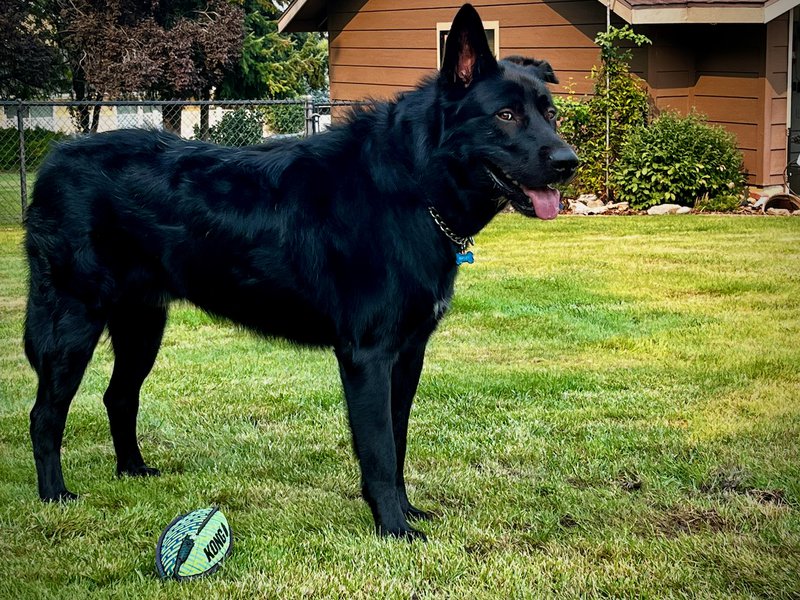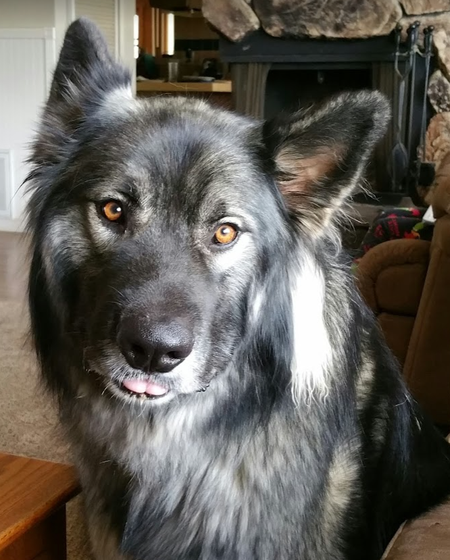Do American Dirus™ dogs make good protection dogs?

The Inherited Aspects of a True Protection Dog
Every dog carries the echoes of its ancestors—some bred to charge headlong into danger, others bred to stay close to the den and soothe the pack. When people ask me about the “natural instinct” for protection, they’re really asking about an inherited temperament that reaches far deeper than training.
Protection work at its core begins with the dog’s inner map of the world. The best protection dogs are not simply taught to guard; they are born with a specific constellation of traits: boldness, discernment, and unwavering devotion to their pack. This is not about aggression. It’s about confidence under pressure and a quiet, steady resolve.
In a wild pack of dire wolves, the alpha was the ultimate leader and protector. The alpha enforced the rules and defended territory, but a very special type of wolf often stood just beneath that top rank: the beta. The beta was the second-in-command, fiercely loyal, confident, bold, and a relentless enforcer of pack order. The beta wolf didn’t crave leadership but gladly upheld the alpha’s rules.
This beta archetype is what we look for in a genuine protection dog. These dogs:
- Possess high confidence but not an inflated ego.
- Are discerning about who belongs in the pack and who does not (what we call “aloofness” in the dog world).
- Stay steady and poised under pressure rather than melting into fear or lashing out.
- Show resilience in their emotional state, able to handle challenge without crumbling.
Breeds bred for protection sports—Belgian Malinois, working-line German Shepherd Dogs, certain Rottweilers, and sometimes Dobermans—often exemplify this inherited beta-like temperament. However, breeding matters deeply. Within every breed there are lines that are fearless and steady, and lines that are unstable or simply too friendly to guard.
Then there are the livestock guardians—Great Pyrenees, Anatolian Shepherds, Tibetan Mastiffs. These are the lone sentinels of the dog world, more like the frontier scouts of the Ice Age. Independent, bold, and often roaming far from home, they thrive on solitude and duty rather than human closeness.
Where the American Dirus™ Fits
Many people assume that because the American Dirus™ dog looks imposing—like a living echo of an Ice Age predator—it must also carry a fierce guardian’s heart. In truth, its inherited temperament is the polar opposite of the classic protection dog.
American Dirus™ dogs are designed to be the ultimate family companions, not warriors. They are:
- Thoughtful observers rather than bold challengers.
- Loyal to their pack but not dominant leaders.
- Emotionally sensitive rather than emotionally armored.
- Low-drive, low-energy, and slow to react, preferring time to assess rather than charging forward.
If we were to place them in a dire wolf pack, they’d be the omega—the peacekeepers who soothe tensions, not the betas who enforce order or the alphas who lead the charge. They thrive under leadership and clear direction but can wilt under harsh pressure.
What they do offer is quiet devotion and an impressive deterrent appearance. But temperamentally, they are bred to be steady companions—gentle with children, thoughtful with guests, and deeply bonded to their humans—not natural protectors.
Choosing the Right Dog for the Job
If your priority is a true protection dog—one who instinctively recognizes danger and responds with courage—you’ll need a breed whose genetics have been honed for that purpose. Look for lines within working-bred Malinois, German Shepherd Dogs, Rottweilers, or well-bred livestock guardian breeds. Assess not only the breed but the individual temperament. Meet the parents if possible. Ask about stability under stress, aloofness, and resilience.
If instead you’re seeking a loyal companion with a calm, thoughtful presence, then an American Dirus™ dog shines. They are like Ice Age hearth-dogs—content to watch the horizon with you, not patrol it.
Final Thoughts
In the end, a dog’s inherited nature is like the deep grain of ancient wood—you can shape it a little, polish it a lot, but you cannot make oak behave like pine. A true protection dog is born with the beta wolf’s confidence and resolve. The American Dirus™ dog is born with the omega’s gentleness and loyalty. Both roles are noble; they simply serve different needs.
